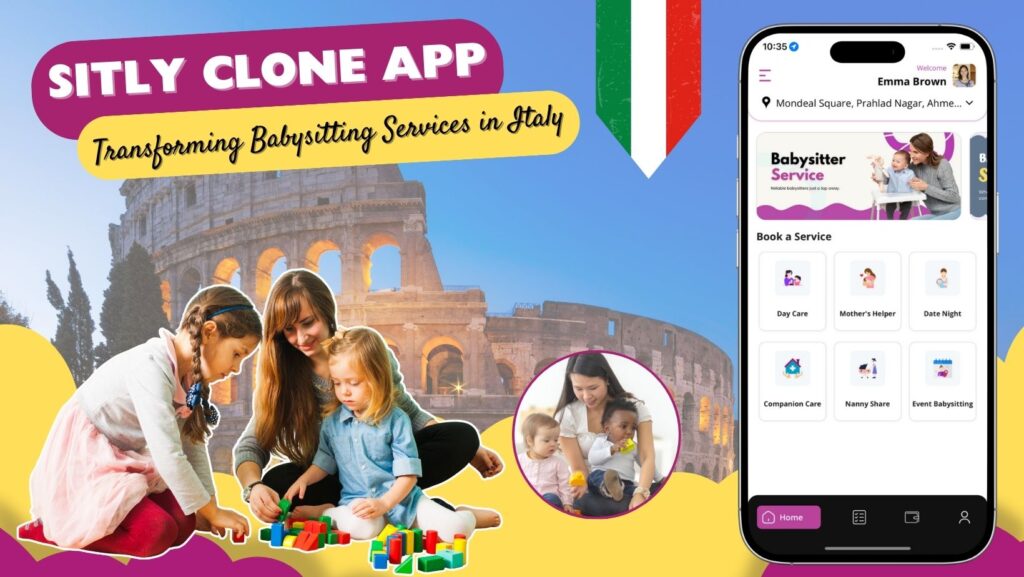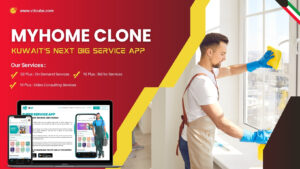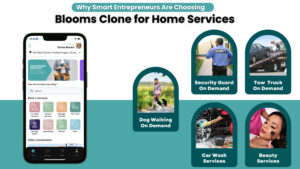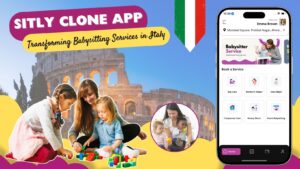
In Italy, family is everything. You probably know that already. Nonna helping with the children, zia dropping by to cook, cousins always around. That’s how childcare worked for decades. You didn’t “book” someone to watch your kids, you just called your sister. Or your mother.
But. Not everyone lives close to family anymore. Work has pulled parents into new cities, sometimes new countries. Schedules are messy. Life has changed. And suddenly? Parents are finding themselves needing help in ways that their grandparents never imagined.
Enter Technology
This is where something like a Sitly Clone babysitter app in Italy sneaks into the story. At first, people raise eyebrows, “an app? For babysitters? That sounds cold.” But then you look closer and realize it’s not about replacing family. It’s about filling the gaps.
Think about evenings when both parents work late. Or weekends when there’s no one to call. Or maybe a single parent just trying to keep up with everything. That’s when a babysitter app stops being a luxury and starts being survival.
Now, what exactly is a Sitly Clone? No jargon. No tech fluff. It’s simply a ready made babysitter finder app, designed so entrepreneurs in Italy (or anywhere, really) can launch their own childcare on demand service. Instead of coding for months, you start with a clone that already has the basics built, search, profiles, booking, payments. You just adapt it to the local flavour.
And Italy has its own flavour. Parents here don’t just want convenience. They want trust. That’s probably the most important thing. A stranger in your house is not just a “service provider,” it’s someone looking after your child. Which means Sitly Clone in Italy must emphasize transparency. Reviews. Background checks. Maybe even small details like showing if the babysitter speaks Italian or another language (lots of families are bilingual now).
Apps Burning a hole in your Pocket
Here’s the other thing. Many people assume apps like this are only for wealthy families. Not true. With flexible hourly booking, parents can afford small chunks of help. Maybe two hours on a Thursday evening, so they can run errands. Or one Saturday morning, so they can just breathe for a moment. That’s the practical side of an app. It makes babysitting accessible, not exclusive.
For entrepreneurs, it’s interesting too. Italy’s childcare market is not saturated with apps the way food delivery is. That’s an opportunity. Parents are already used to apps for taxis, groceries, doctors. Adding “babysitter app Italy” into their daily life is not such a leap anymore. And because clones shorten the launch time, someone with an idea could get this going in months, not years.
Starting your Babysitter app based business in Italy?
But let’s not pretend it’s easy. Running this kind of app means handling delicate situations. A babysitter is late? That’s not just a bad review, that’s a parent in distress. A profile isn’t real? That’s trust broken. These things matter more in childcare than in any other on demand service. Which is why entrepreneurs need to be ready for both the tech side and the human side.
There’s also something else worth saying. Italy, like much of Europe, is facing declining birth rates. Families are smaller. Parents are older. Which often means they’re balancing careers and children in ways that weren’t common before. More late meetings. More business trips. More reasons why a babysitter app becomes relevant. The Sitly Clone isn’t just another start up gimmick, it’s a tool shaped by changing demographics.
The Need For Structure
If you zoom out, you can see the bigger picture: childcare is shifting from “informal networks” (family, friends, neighbours) to “structured platforms” (apps, verified sitters, digital payments). That doesn’t mean Italians will stop relying on their nonna. But it does mean the safety net is widening. And for many parents, that’s exactly what they need.
So, is there room in Italy for a babysitter app like Sitly? Yes. Absolutely. Not to replace tradition, but to work alongside it. And maybe that’s the real charm here.
What we think
Technology doesn’t erase culture. It bends around it. An app in Italy should never try to make childcare look like it does in New York or London. Instead, it should blend with what’s already here, strong families, community ties, but also modern challenges.
In the end, a Sitly Clone is less about “software” and more about solving a real, messy, everyday problem: who looks after the kids when you can’t? That’s the question Italian parents are asking. And apps are starting to answer.







